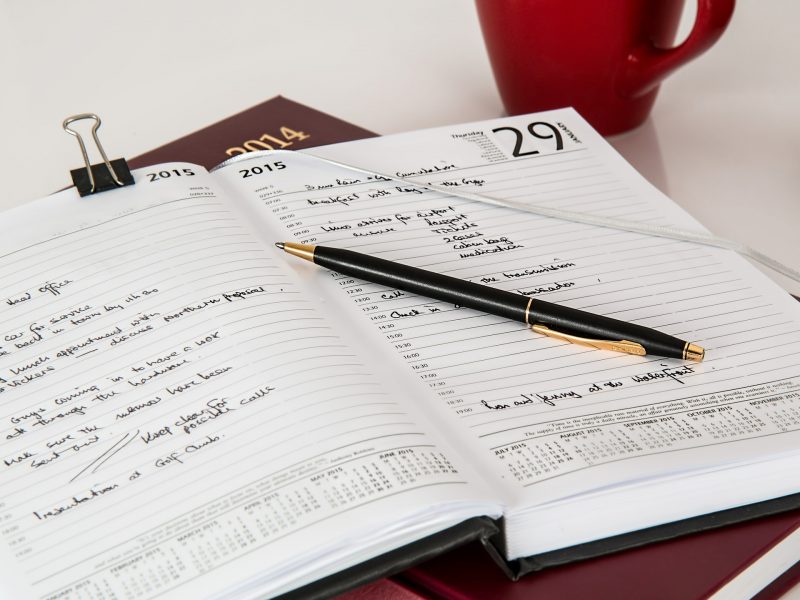
One of the great things about being a solopreneur is that you get to set your schedule, and that’s also one of the most challenging things.
Twenty years ago when I started coaching, my mentor coach impressed on me that it was my job to design the schedule I wanted. If it didn’t work, or if it stopped working because things had changed direction, it was my responsibility to tweak things.
I find this happens about every two or three years. My cue is usually that my desk is overrun with post-it notes that just keep stacking up because I’m not completing the tasks I’ve written on them.
If I’m not getting things done, I need to ask myself: What do I really want to accomplish? What are the things only I can accomplish? Am I delegating the tasks that distract me from those?
It sounds simple, but it’s not as easy as it seems.
Here are five questions that will help you design the best schedule for you:
- Which activities feel rushed and pressured, or do you tend to put off? These may be self-care actions like eating mindfully, taking a walk, or getting to a medical appointment, or work tasks like session notes, invoicing, or business planning. Take a look at what might be going on, and what support you might need to make these part of your schedule. Also, question whether any of them should be delegated to someone who can do them faster and more joyfully than you ever could.
- What are your business hours? Some people are fine working evenings or weekends. Personally I only work evenings maybe four times the entire year, otherwise I walk out of my office no later than 5:00 p.m. and often by 4:00 p.m. Since my first day as a coach I’ve had a three-day weekend (Fri-Sun), unless I’m out of the country doing a training.
- When do you have the most energy, focus, and creativity? If I have a task I need to concentrate on, I try to schedule it for 10:00 or 11:00 a.m. By the afternoons when my energy is winding down, I need to be conscious of what I’m doing. I can still coach at those times, but I’ll stand up and walk around to keep my blood flowing and my mind more focused.
- How can your schedule better accommodate your natural pace? We sometimes need more or less time for the same task, and this also changes over the years. On the one hand, we may get quicker at repeated tasks, but on the other hand, we may challenge ourselves to raise the bar and do things more thoroughly.
- How much space do you need in your schedule? We need space between things, to stop and think. Sometimes we rush to fill in that space with what we assume are “mindless” tasks like scrolling through email, but then oops! We forget an attachment, or reply without reading carefully and get into a misunderstanding. Space is also important for needing travel time to and from an appointment.
A schedule can be a tool that works for you, not the other way around. It’s all about making sure the things most important to you get done. The key is to keep your schedule fluid and flexible. Things will get added, and they may be really important. That’s when you can decide what to take away or delegate.
What if you started your schedule by blocking out time to eat, sleep, be with your family, and rest? What if you only scheduled 85% of your time, or 75%, or even 60%, for those inevitable items you haven’t planned? These choices are up to. If you somehow end up with extra time in your day, that’s okay too. There’s always something to read, something to do, or someone to call.

 The Five Core Ingredients of a Coaching-Inspired Workplace
The Five Core Ingredients of a Coaching-Inspired Workplace